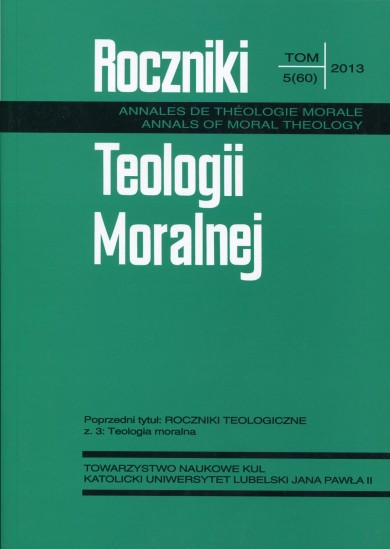CHRYSTOCENTRYZM PERSONALISTYCZNY
PERSONALISTIC CHRISTOCENTRISM
Author(s): Andrzej DerdziukSubject(s): Christian Theology and Religion
Published by: Katolicki Uniwersytet Lubelski Jana Pawła II - Wydział Teologii
Keywords: MORAL THEOLOGY; CHRISTOCENSTRISM; PERSONALISM; VOCATION; THE NEW COVENANT
Summary/Abstract: Christocentrism is now one of the most widespread ideas in moral theology, allowing a coherent definition of the issues of moral life. The personalistic character of Christocentrism indicates the necessity of defining Christian morality in the perspective of the first person, owing to which a Christian not so much is directed by some outer law written down outside him, as searches for the true good, according to the principle of being open to the truth that is written in his conscience. A bond with Christ may be formed on the plane of motivation that results from undertaking the task of following, from the ontic rootedness as a new creature and on the basis of identification of one's aim with the aspiration that is in Christ. The „Chris¬ to-form" of human life gives a man a new identity and opens him to participation in the Trinitarian life. The biblical ideas that define the personalistic dimension of Christocentrism most fully, are the idea of vocation and the idea of the New Covenant, which have been given a significant place in Polish moral theology. Pointing to a dynamic and responsorial character of Christian morality these ideas allow an integral definition of the phenomenon of aspiration to perfection in love that is at the same time a fullness of personal life.
Journal: Roczniki Teologii Moralnej
- Issue Year: 2009
- Issue No: 1 (56)
- Page Range: 41-54
- Page Count: 14
- Language: Polish

